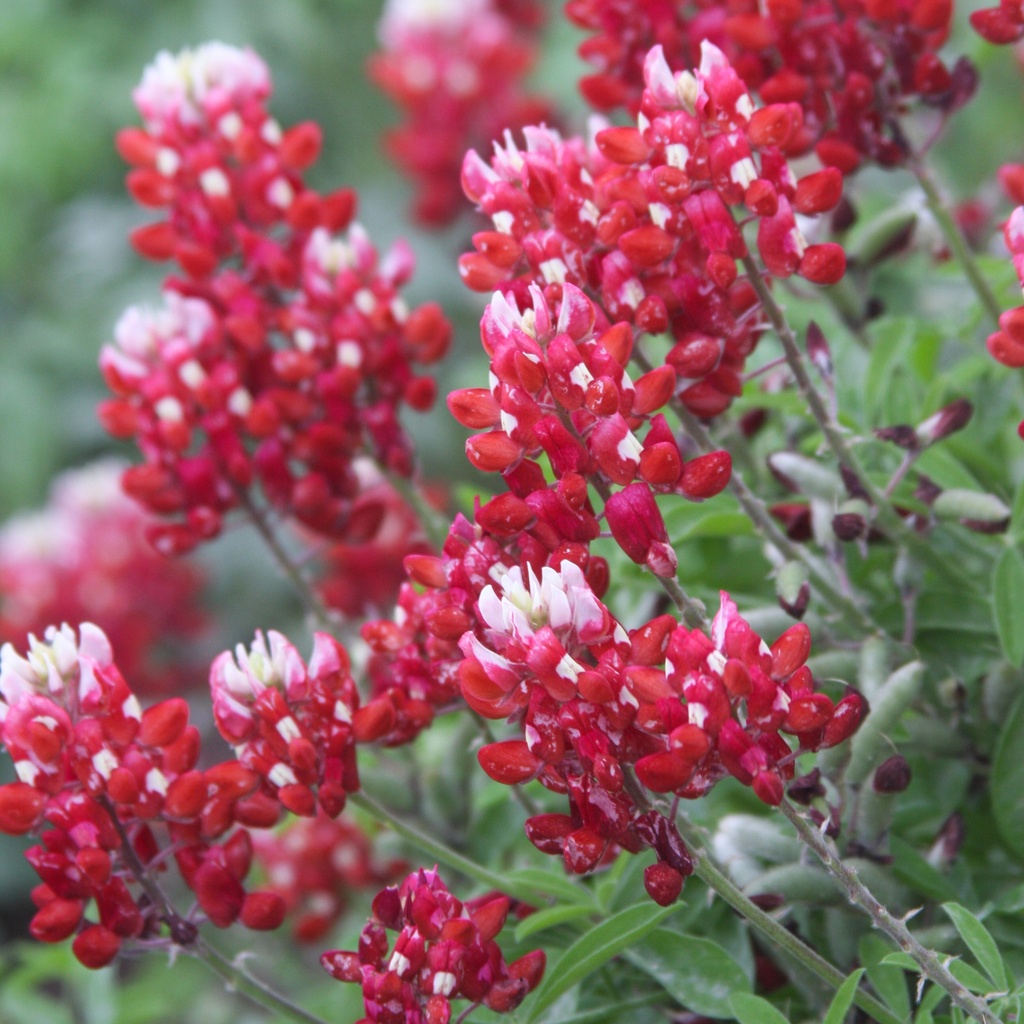TEXAS MAROON BLUEBONNETS
Short Description:
Texas Maroon bluebonnets are a special variation of bluebonnets developed and increased in conjunction with Douglass King Seeds and Dr. Jerry M. Parsons, retired professor and Texas A&M Extension Horticulturist. The original plant was found in a planting of ‘Abbott Pink’ near La Pryor, Texas and has taken over 30 years to develop. The ‘Texas Maroon’ bluebonnet cannot tolerate poorly drained, clay based soils. Prefers a sloped area in light to gravelly, well-drained soil. Requires full sun. For larger quantities please call (210) 661-4191 or email sales@dkseeds.com
All payments are final and no refunds will be processed.
All orders are processed within 2-3 business days.
View Our Terms and Conditions
For larger quantities, please call (210) 661-4191
or email sales@dkseeds.com
Description
Texas Maroon Bluebonnets are a special variation of bluebonnets developed and increased in conjunction with Douglass King Seeds and Dr. Jerry M. Parsons, retired professor and Texas A&M Extension Horticulturist. The original plant was found in a planting of ‘Abbott Pink’ near La Pryor, Texas and has taken over 30 years to develop. The ‘Texas Maroon’ bluebonnet cannot tolerate poorly drained, clay based soils. Prefers a sloped area in light to gravelly, well-drained soil. Requires full sun. Cross-pollination will occur in future generations. To keep plants true to color, remove any plant that blooms in off-color shades other than red-maroon as soon as possible.
Suggested Use: Raised flower beds, half wooden barrels.
Planting Depth: 1/4 inch deep. This gives the seed the benefits of having the shortest distance to travel to the surface while also being deep enough to keep moisture.
Landscape Planting Rate: 1-2 lbs. per 1,000 square feet.
- 1 lb. should cover about 500 square feet. The flowers will be densely together.
Rangeland Planting Rate
35 lbs. per acre (1 acres is 43,560 square feet). The flowers will be more spread apart. If you wish for denser cover, plant more heavily.
Blooming Period
March - May
Best Time To Plant
Early August through October
Soil
Light to gravelly, well-drained soil
Type
Cool Season Annual











